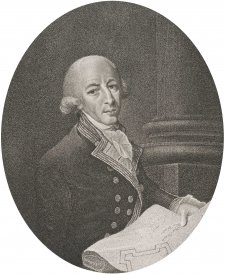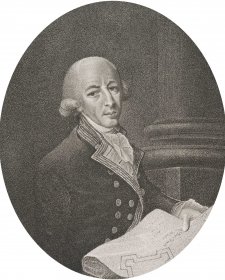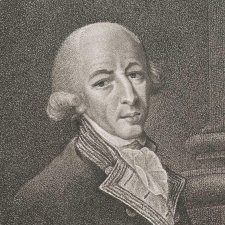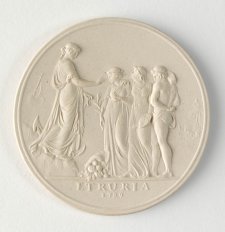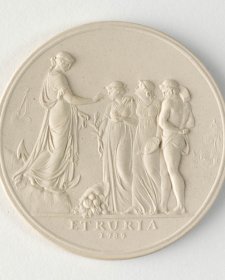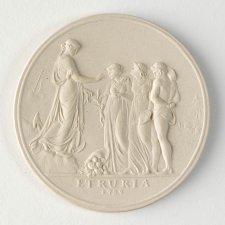Arthur Phillip (1738–1814), first governor of New South Wales, began his career while a boy in London. Educated at the Charity School of the Royal Hospital for Seamen at Greenwich, he was apprenticed to a whaler before serving as a powdermonkey in the Battle of Minorca and, later, a lieutenant in the Siege of Havana. Over the ensuing years he lived in France, served in the Portuguese Navy in Brazil from 1775 to 1778, commanded the Europe in the Bay of Bengal and spent time in Cape Town before returning to France. According to a recent biography by Michael Pembroke, over this period he engaged in espionage for the British. Endorsed by Even Nepean, under-secretary of the Home Office, in October 1786 Phillip was appointed to establish a colony on the east coast of Australia (before the French did). It was largely down to his meticulous planning that the First Fleet – comprising eleven ships, 1500 people and two years’ worth of supplies – arrived at Sydney Cove in January 1788 at all. However, in the four years of his governorship convicts and officers alike felt intensely isolated and uncertain, and experienced critical shortages of food. As an Enlightenment man, he persisted in his hopes for the colony, always envisaging more than a convict settlement, insisting on equal distribution of rations and generally emphasising the desirability of peaceful relationships with Sydney’s Indigenous people (‘Any man who takes the life of a Native, will be put on his trial as if he had killed one of the Garrison. This appears to me not only just, but good policy’, he wrote.) He contributed to early plans for the layout of Sydney and initiated farming at Parramatta before leaving the colony because of illness. He returned to naval duties in the late 1790s, becoming a rear admiral of the Blue and inspector of the Sea Fencibles. By the time he died, to be buried in a small church in Bathampton, he was a full Admiral of the blue, the highest of the nine ranks of admiral.
- About us
- Support the Gallery
- Venue hire
- Publications
- Research library
- Organisation chart
- Employment
- Contact us
- Make a booking
- Onsite programs
- Online programs
- School visit information
- Learning resources
- Little Darlings
- Professional learning
